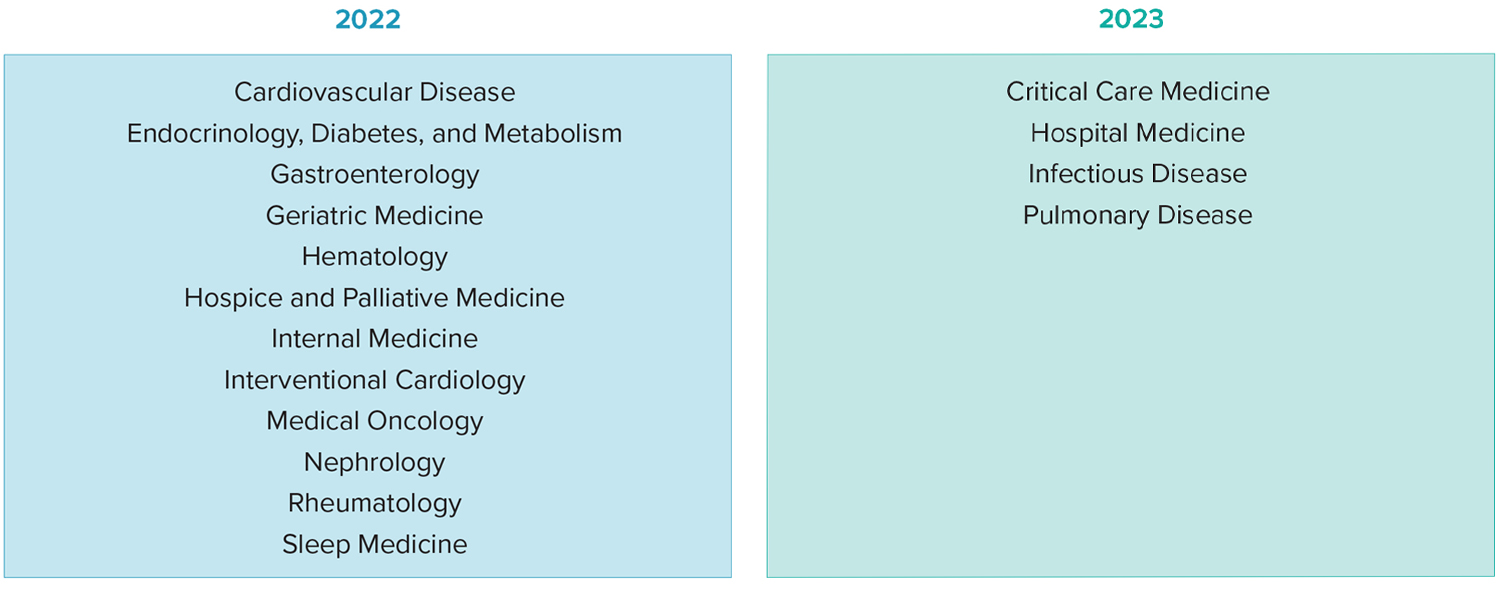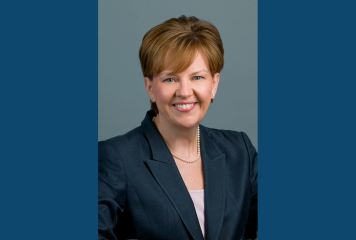Summary Report: Fall 2020 Nephrology Board Meeting
November 19, 2020 | Posted by ABIM | Uncategorized
Fall 2020 Meeting
The fall meeting of the Nephrology Board comes at an extremely important time for ABIM and its diplomates. The ongoing fight against the COVID-19 pandemic has brought many challenges upon the physician community, and it is against this backdrop that ABIM virtually convened the eight members of the Nephrology Board to discuss moving the discipline forward.
The meeting represented the first time that Rudolph A. Rodriguez, MD, presided as Chair, after serving as an at-large member of the Nephrology Board since its inception in 2014. During his term, Dr. Rodriguez says he looks forward to contributing to the mission of ABIM and expressing the concerns of the communities he serves, including the patient voice. Read more about Dr. Rodriguez as part of ABIM’s Voices that Transform blog series.

Leadership Update
Richard J. Baron, MD, ABIM President and CEO, addressed the Nephrology Board and commented on recent issues that have arisen in health care due to the pandemic, including the disparities in COVID-19 infection and mortality rates in Black and Brown communities. He reiterated the important role ABIM and the ABIM Foundation play in addressing these issues, calling forth the organization’s joint Statement on Racial Justice issued over the summer and new initiatives to make this vision a reality, including a grant program to build trust and equity in internal medicine training. He also noted the increasing mistrust in medicine and institutions occurring broadly across swaths of society, and that ABIM Board Certification may be more meaningful now than ever as it serves as a demonstration of knowledge and professionalism upon which patients rely.
He then highlighted key ABIM policy decisions that were made this spring to offer physicians more flexibility in maintaining their certification in response to the pandemic:
- No one will lose certification if they aren’t able to complete a Maintenance of Certification (MOC) requirement this year.
- Physicians that have an assessment, attestation or points due in 2020 will have until 12/31/21 to complete them.
- Physicians currently in their grace year will be afforded an additional grace year in 2021.
- Those physicians whose Board Eligibility expires in 2020 may take the exam in their discipline in either 2020 or 2021, whichever works best for their individual situation.
Dr. Baron also provided an update on progress in developing a longitudinal assessment pathway, scheduled to launch in Nephrology in 2022. While this new pathway will better integrate education with assessment, Dr. Baron noted that it is still an assessment, and that a summative pass/fail judgement will be made at the end of a five-year cycle. More information about the longitudinal assessment pathway can be found later in the Specialty Board meeting summary.
Nephrology Project Updates
The next two sessions followed up on conversations from previous Nephrology Board meetings, and the group was joined by Nephrology Board Chair Emeritus Jeffrey S. Berns, MD.
Nephrology Procedures
The Nephrology Board discussed its ongoing work with the American Society of Nephrology (ASN), including the May 2019 joint letter sent to the Accreditation Council for Graduate Medical Education (ACGME) by ASN and ABIM about deficits in procedural competency in nephrology training. One particular deficit identified was that many programs lack the capacity to train fellows to competency on the performance of kidney biopsies, despite the fact that this skillset is a requirement for ABIM certification, and ACGME program accreditation. Additionally, Nephrology Board member Paul T. Conway, President of the American Association of Kidney Patients (AAKP), reported that his organization solicited patient input on peritoneal and home hemodialysis and learned that patients were alarmed that physicians could graduate from fellowship without this extensive training in these modalities. This is an issue that the Nephrology Board will continue to explore in partnership with the ACGME.
Nephrology Certification Exam Performance Analysis
In recent years, nephrology fellowship programs have had low fellowship match rates and examinees have had low pass rates on the Nephrology Certification Examination. To understand factors associated with nephrology exam performance, staff conducted a research study and presented their findings to the Specialty Board. They found that physician and fellowship program characteristics did matter, and the changes over time in those characteristics contributed to the decline in examination performance. A publication of the findings is in development. This will be an area the Nephrology Board discusses again in the spring.
New proposed ABMS Standards
The American Board of Medical Specialties (ABMS) Standards Task Force was created in July 2019 as a byproduct of the ABMS-sponsored Continuing Board Certification: Vision for the Future Commission (Vision Commission). The group is drafting new standards, incorporating many recommendations of the Vision Commission. It is anticipated that a draft of the new standards will be available for public comment in late 2020/early 2021 – with potential adoption of final standards by ABMS in mid-2021. The Specialty Board anticipates discussing this topic again at its spring meeting once the new ABMS draft standards have been made public.
Reimagining the MOC Point System
ABIM has taken a proactive approach to evaluating its MOC points system, which is aligned with the ABMS requirements for lifelong learning and self-assessment. Currently, ABIM diplomates are required to earn 100 MOC points every five years to maintain their certification, and to earn any amount of points every two years to be listed as “participating in MOC.”
Specialty Board members provided observations about the current MOC points system and whether they thought it helped nephrologists stay current in knowledge and practice. They also discussed knowledge areas and skills that could be better recognized in the current MOC system, or by new activities created by external partners (e.g. professional societies, healthcare systems, medical schools). This topic will be explored again at future ABIM Governance meetings, and ABIM is planning outreach to diplomates and stakeholder organizations this fall in order to gather feedback.
Longitudinal Assessment Pathway Update
The Nephrology Board dedicated a session to discussing progress on the longitudinal assessment pathway, scheduled to become available in Nephrology in 2022. See below for the full rollout schedule:
Since the longitudinal pathway was first announced in August 2019, ABIM has released many details:
- The longitudinal assessment pathway will have a five-year cycle and include both a participation requirement and performance standard:
- Participation: Physicians will be offered 120 questions each year, for a total of 600 over five years; physicians will only have to complete 500 questions over the 5 years though.
Because ABIM understands that physicians have times when professional or personal responsibilities are especially demanding, they can take a break from the longitudinal assessment—skipping up to 100 questions over the course of each five-year cycle—without penalty.
- Performance: Feedback relative to the standard will be provided over the course of the five-year cycle, and a final passing determination will be calculated at the end of year five.
- It is a lower-stakes assessment option:
- Physicians cannot lose certification if they do not successfully meet the participation requirement or performance standard.
- In those instances, they can pass the traditional, 10-year MOC exam the following year to remain certified.
- There are many key features of longitudinal assessment that differentiate it from ABIM’s current assessment options, some of which include:
- The assessment promotes learning by providing immediate feedback, rationales and references for most questions.
- Questions can be answered any place or time, and the platform will be available on mobile phones, tablets, laptops and desktop computers.*
- Physicians will have four minutes to answer each question, along with a pool of extra time to access if necessary.
- There is no camera monitoring in use while answering questions; user identity and assessment security is achieved using alternative methods of validation.
*For questions that contain media files with audio, video or still images, the user experience is optimized on a laptop or desktop computer.
As part of the longitudinal update in the Fall 2020 News and Notes that was emailed to all ABIM diplomates, Dr. Baron shares a video overview of the new pathway and its features that physicians can look forward to.
Nephrology Board members discussed the longitudinal assessment updates with senior ABIM staff, and shared their thoughts on what has been developed thus far as well as the elements of the pathway that still need to be formalized. They were especially interested in scoring, and how diplomates will be updated along the way regarding their progress relative to the set standard. This feedback will provide an opportunity for physicians to focus their study based on knowledge gaps and improve their performance over the course of the five-year cycle. Along those lines, ABIM is also exploring the possibility of partnering with specialty societies to enhance the educational resources associated with each assessment question.
Members then discussed the assessment options for those with multiple certificates and how some of them will choose to mix and match utilizing the new longitudinal assessment pathway versus the traditional, 10-year MOC exam. Relating to longitudinal, there was a suggestion that ABIM look for ways to better accommodate those with multiple certificates by melding the question content of two disciplines to create a single assessment without increasing the overall number of questions. The result would be an assessment that signifies a physician’s currency in two disciplines without the increased burden of having to take two assessments. ABIM Senior Vice President of Assessment and Research, Rebecca Lipner, PhD, shared that staff are starting to explore the possibilities for doing this in disciplines with many diplomates who have multiple certificates, and involving a great deal of content overlap such as critical care medicine/pulmonary disease/sleep medicine, or hematology/oncology. However, this work has only just begun and there is much to consider before determining if it is a viable option.
Diplomates are encouraged to provide feedback as additional features of the longitudinal pathway are still in development.
Enhancing the Connection between ABIM Governance and the Physician Community
ABIM Governance includes a diverse and talented group of over 350 members across more than 50 boards and committees. They are critical to helping ABIM achieve its mission to enhance the quality of health care by certifying internists and subspecialists who demonstrate the knowledge, skills and attitudes essential for excellent patient care. One of the ways they do this is by being connected to the community – sharing updates, having conversations with colleagues and collecting feedback.
During this session, members discussed ways to effectively communicate with the community and some shared their firsthand experiences. They spoke of simple engagement such as initiating a conversation with colleagues to garner feedback on longitudinal assessment, or more in-depth activities such as writing articles, making presentations or recording videos to better connect with fellow physicians on a personal level. Members also spoke of the importance of reaching out to the public as ambassadors of ABIM and that the role of the patient voice is especially important in nephrology.
In Closing
The Nephrology Board welcomes feedback and commentary from diplomates, society partners and the greater medical community.
Do you have any questions? Are you interested in how to get involved?
If you have questions after reading this report, please connect with us through the following channels:
- Subscribe to the ABIM blog.
- Call:1-800-441-ABIM (2246)
- Email: request@abim.org
- Join our Governance to help guide our future direction.
- Join our Community Insights Network to share your feedback.
- Share your feedback on the new longitudinal assessment.




